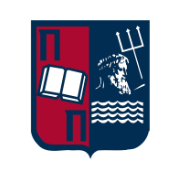The Department Chair would like to welcome you to the official website of the Department of Digital Systems of the University of Piraeus. The main aim of this website is to inform all interested parties on the academic, research and development activities of our Department.
The department covers (through the curricula and the conducted academic research) important areas of the widely and rapidly developing field of Digital Systems and ICT. More specifically, the department’s curricula and research cover the areas of digital/network services, big data processing, artificial intelligence, biomedical and health informatics, broadband (wireless and optical) networks, e-learning and educational technology as well as the techno-economical management and security of digital systems.
The department’s Undergraduate Programme lasts eight semesters (4 years) and is divided into the following areas of study: the “Telecommunications & Networks” (T&N) area, the “Software & Data Systems” (SDS) area, the “Computantial Infrastructures & Services” (CIS) area, the “Security” (SEC) area and the Teaching Qualification (ICT) area. The programme awards 240 European Credit Transfer and Accumulation System (ECTS) credits and has been designed to prepare scientists capable of successfully dealing with the complex issues of modern digital technology’s systems and servicesdevelopment, implementation and management. Additionally, the Department’s graduates are fully vested to work in the Greek Public Sector, in the field of Computer Science.
The Department of Digital Systems offers ten Postgraduate Programmes:
- The Postgraduate Programme in “Information Systems & Services” leads to a Master’s Degree (M.Sc.) of 90 ECTSs credits in one of following areas of study:
- Advanced Information Systems
- Big Data and Analytics
- IT Governance
- The Postgraduate Programme in “e-Learning” leads to a Master’s Degree (M.Sc.) of 90 ECTSs credits in the area of study “e-Learning”.
- The Postgraduate Programme in “Cybersecurity and AI Technologies” leads to a Master’s Degree (M.Sc.) of 90 ECTSs credits in the area of study “Digital Systems Security”.
- The Postgraduate Programme in “Law and Information and Communication Technologies” leads to a Master’s Degree (M.Sc.) of 90 ECTSs credits in the area of study “Law and Information and Communication Technologies”.
- The Postgraduate Programme in “Climate Crisis and Information and Communication Technologies” leads to a Master’s Degree (M.Sc.) of 90 ECTSs credits in the area of study “Climate Crisis and Information and Communication Technologies”.
- The Department of Digital Systems participates in the Inter – University Postgraduate Programme “Health Care Management – Health Informatics”.
- The Department of Digital Systems participates in the Inter – University Postgraduate Programme “Digital Health and Analytics”.
- The Department of Digital Systems participates in the Inter – University Postgraduate Programme “Artificial Intelligence”.
The Department also offers the opportunity to all qualified graduates of recognized Greek or foreign Universities to conduct a Ph.D. Thesis.
The Department hosts the following research laboratories: “Network-Oriented Systems & Services”, “Digital Health Services”, “Telecommunication Networks & Integrated Services”, “Systems Security”, “Telecommunication Systems”, “Digital Systems for Learning & Education”, “Media Technologies and Intelligent Systems (METIS)”, “Artificial Intelligence” and “Computational Biomedicine”. All of the them are active at National and International level.
Enjoy your surfing!
The Department Chair
Professor George Efthymoglou

